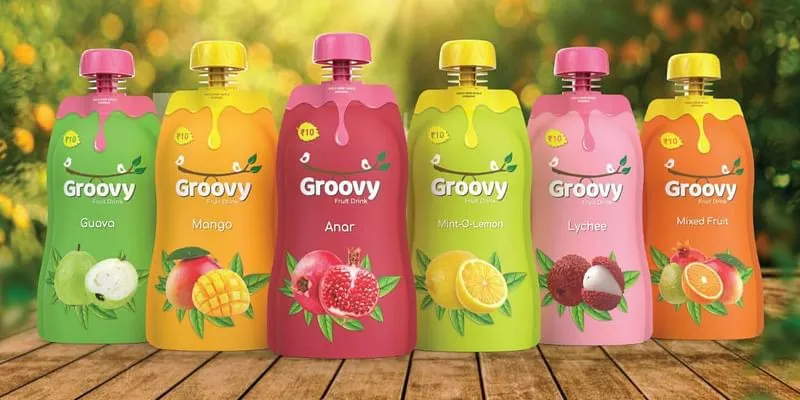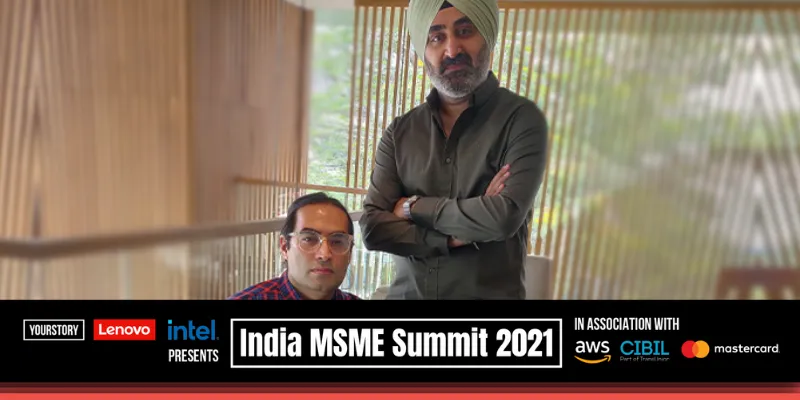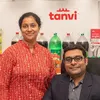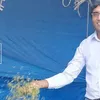Meet the brothers who clocked Rs 15 Cr revenue in just a year by selling fruit juice packs for Rs 10
In 2019, brothers Mitkaran Singh and Rajneesh Sharma started Groovy Juices to sell fruit juices at Rs 10 to Tier II and Tier III cities, and rural areas across North India. Following a purely offline sales model, here is how they sold 1.5 crore juice packs in just one year.
When brothers Mitkaran Singh and Rajneesh Sharma – B2B manufacturers of packaged drinking water - would meet family members living abroad, they heard them gush about the high quality of juice packs available in the US and Canada.
The visiting relatives’ disparaging remarks about locally-made, Indian juice products - especially those supplied to rural areas - did bother the duo, but it also inspired them to do something about it.
And act they did, as Mitkaran and Rajneesh not only went on to launch their own brand of high quality fruit juice, but also made sure that they were affordably priced for underserved communities, by launching Enhaz Beverages. They also spun a fruit juice brand under it called Groovy Juices.
Established with an initial investment of Rs 10 lakh, Groovy’s production commenced in July 2020 amidst the pandemic in the brothers’ packaged drinking water plant in Rudrapur, Uttarakhand, which was revamped to manufacture fruit juice.
Although the New Delhi-headquartered business has not filed its annual returns yet, Mitkaran, who is co-founder at Enhaz Beverages, says:
“Selling attractive-looking Groovy juice packs at Rs 10 each (for 150 ml) through more than one lakh offline retail counters in Jammu & Kashmir, Uttarakhand, Gujarat and Uttar Pradesh, we clocked Rs 9 crore turnover in 2020-21. Overall, despite a few months spent in lockdown, we have sold around 1.5 crore packs - which amounts to Rs 15 crore in sales since inception.”

Groovy Juices product range
Building a range of flavours
With Groovy, the brothers are steadfast in their vision to make high quality fruit juice. Mitkaran, who oversees R&D, and imports oranges, lemon concentrate and other ingredients, has set up a team of experts to formulate and create a preservative-free range of fruit juice flavours with a shelf life of six months.
After having friends and family test the different flavours, Groovy finalised six - mango, guava, anar (pomegranate), mint-o-lemon, lychee and mixed fruit, and added them to its product portfolio.
However, manufacturing fruit juice at scale at Ghai Overseas - the Rudrapur plant where the brothers also manufactured packaged drinking water - was no easy task for the brothers.
Rajneesh says, “We needed the right kind of machinery to make fruit juices, and we wanted only the best. Most brands with high quality juice products buy machinery from China, so we did the same. We imported them in January 2020, and were all set to welcome Chinese engineers to install the machinery, having even booked their flight tickets.”
And then, the pandemic hit India.
Manufacturing challenges
Overnight, all flights were cancelled, especially those from China.
The brothers were left with machinery that were yet to be installed, and instruction manuals written only in Mandarin and other Chinese languages.
“Due to several restrictions in communication, it’s not easy to call them over the phone. WeChat was also banned in India. We could only email them, but this was slow and time-consuming,” says Mitkaran.
Not one to give up, Mitkaran decided to make use of the resources he had around him. Rudrapur, an industrialised town, was home to factories of large conglomerates such as Tata, Bajaj, M&M, etc.
Mitkaran went around knocking on their doors to get help in the form of specialised, programmable logic controllers and convert the language of the programmes into English. After four months of this leg work, and going through hundreds of Chinese emails and sitting through several calls, the machinery was finally installed, programmed, and ready to go.
In April 2020, the brothers commissioned a second plant in Jammu & Kashmir, under the name of Trikuta Pulp and Nectars, and commenced production. Having learned from the Rudrapur plant delay, the brothers ensured the J&K plant’s machinery was in running condition before importing it to India.
With the new infrastructure in place, the brothers claim they now have the capacity to manufacture up to 700 pouches per minute.

Groovy Juices founders Rajneesh Sharma (left) and Mitkaran Singh (right)
Offline retail strategy
Amidst the second wave of the COVID-19 pandemic, businesses across sectors moved to sell online, while established FMCG/consumer brands looked to build D2C channels to offset the drop in sales at physical stores.
Counterintuitively, the founders of Groovy ensured every sale made by the business so far has been purely offline.
Mitkaran explains, “Large brands moved online to sell in metropolitan cities and urban areas. But our focus is on Tier II and Tier III towns, rural areas and places that are difficult to reach even for large brands, such as towns in hilly areas. Most of our sales come from such areas. We are still not present in Delhi, Mumbai and other metros.”
Transporting products to remote locations can be expensive and time-consuming, with only FMCG behemoths boasting pockets deep enough to reach products such as Coca-Cola, Maggi, Lays chips etc., to such areas.
However, Groovy claims it is managing to do the same by optimising its cost of transportation.
Mitkaran says, “There are several challenges in sending our products to the last mile, especially considering the terrain and road connectivity. But our units are well-established with their own fleet of trucks, which is already experienced in covering such areas.”
Rajneesh adds, “It has been arduous for us to put our product on shelves because retailers were buying limited stocks, and to top it, transporting these goods to the far flung stores was even more challenging. We addressed the problem by supplying strategically, such as combining loads of two or three super stockists in one truck load.”
The brothers claim with these cost-saving measures, the brand is seeing healthy and slightly-above industry-standard margins on its fruit juice products.
Future plans
With rising adoption of healthy and preservative-free fruit drinks in India, the market that Groovy Juices is playing in is expected to grow at a CAGR of 17.1 percent from 2017 through 2030, according to Goldstein research.
What’s more, Tier II, III and other underserved regions are likely to be the most opportunistic regions due to increasing demand.
As they look to build the Groovy brand, the brothers intend to continue selling the Rs 10 packs at physical stores only. However, they do not wish to remain an offline brand forever, and plan to introduce fruit juice packs at Rs 30 and Rs 50, to sell online and offline across the country.
“With our Rs 10 products, we looked to establish our brand and increase reach. We were not looking for huge margins. Now, our plan is to introduce more expensive products, and ensure we don’t lose the online segment. So we are in the process of building a website for online sales, staying active on social media, and drawing up plans to introduce a wider range of beverages,” Rajneesh says.
Edited by Anju Narayanan









